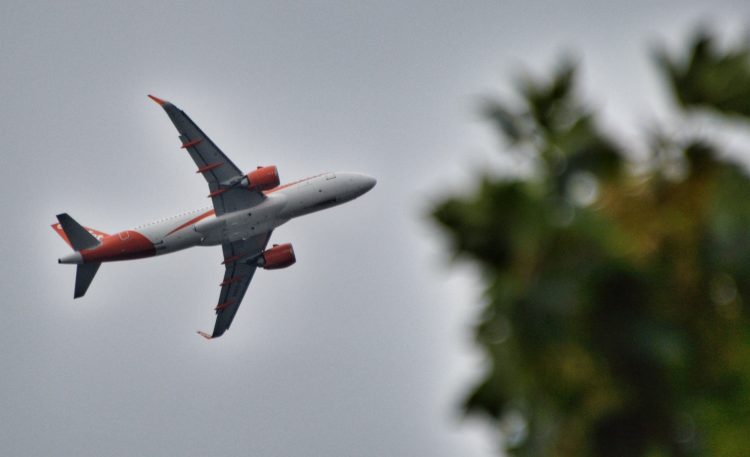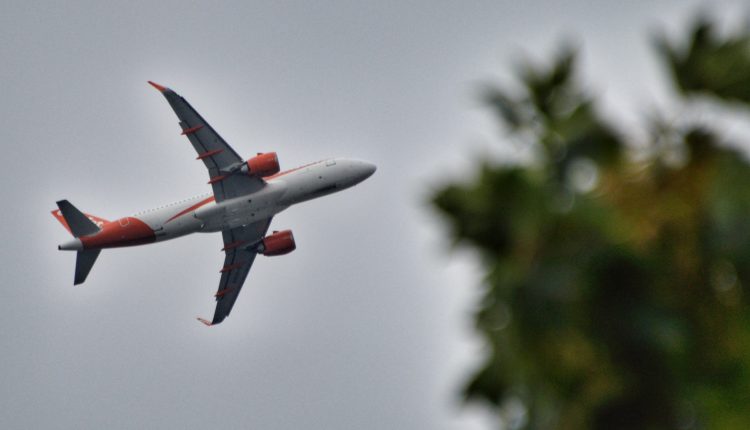Low cost airline easyJet says pre-tax losses in the three months to June 30 hit £114m due to multiple delays and cancellations. Tony McDonough reports

Staff shortages and flight cancellations have led to easyJet reporting losses of £114m in the three months to June 30.
A post-pandemic surge in spring and summer bookings caught a number of airlines and airports in the hope. April, May and June saw countless media reports of delays, cancellations and huge queues through airports.
On June 20 easyJet, which operates 25 routes out of Liverpool John Lennon Airport, said it was being forced to cut capacity for July to September. It had originally planned to operate at 97% of pre-COVID levels but was cutting this back to 90%.
However, this move was too late to halt the damage to its finances caused by the early summer chaos. Revenues for the quarter hit £1.76m – much higher than than £213m reported in the same period in 2021 when Europe was still in the grip of COVID.
During the period passenger revenue from ticket sales was £1.15m – up from £152m. Ancillary revenues, which include extra baggage fees and food and drink, stood at £603m – up from £213m. But the widespread disruption cost easyJet £133m, leading to a pre-tax loss of £114m.
In a trading update on Tuesday, it said: “In Q3 easyJet flew 22m passengers, more than seven times higher than the same period last year, representing 87% of FY19 capacity. Load factors (percentage of seats filled) continued to build over the quarter, reaching highs of 92% in June.
“The unprecedented ramp up across the aviation industry, coupled with a tight labour market, has resulted in widespread operational challenges culminating in higher levels of cancellations than normal. Despite this, easyJet operated 95% of its planned schedule in Q3.
“Action taken to remove capacity and build resilience into Q4, due to caps imposed by London Gatwick and Amsterdam Schiphol alongside wider challenges within Europe has resulted in July operations to date being much improved. “
Airline ancillary yield per passenger of £22.07 continues to outperform pre-pandemic levels, up 55% on the same period in 2019. And easyJet holidays generated £16m of profit in the quarter as it carried 400,000 customers. The holidays business remains on track to carry 1.1m passengers in the full year.
Johan Lundgren, easyJet chief executive, added: “Delivering for customers this summer remains our highest priority. During the quarter we carried seven times more customers than the same time last year and operated 95% of our schedule.

“We have taken action to build the additional resilience needed this summer and the operation has now normalised. Despite the loss this quarter due to the short-term disruption issues, the return to flying at scale has demonstrated that the strategic initiatives launched during the pandemic are delivering now and with more to come.
In July the chief executive of easyJet’s main rival Ryanair, Michael O’Leary warned rising fuel costs would push up fares in 2023. Airlines commonly use ‘hedging’ to even out the spikes in fuel prices. This means agreeing a price months in advance for its fuel.
For the rest of this summer easyJet will pay $705 per metric tonne for its fuel. But in the coming months this will rise to £784 and then $879 into 2023. The spot price on July 22 2022 was around $1,090. If the price remains high it is likely Mr O’Leary’s prediction will come true next year.

